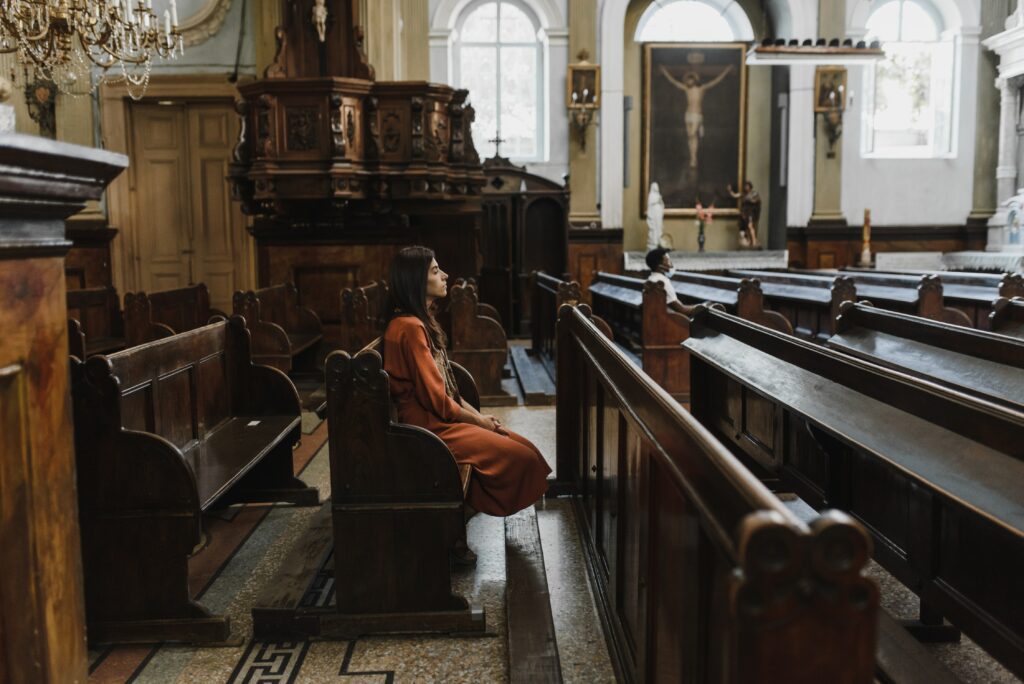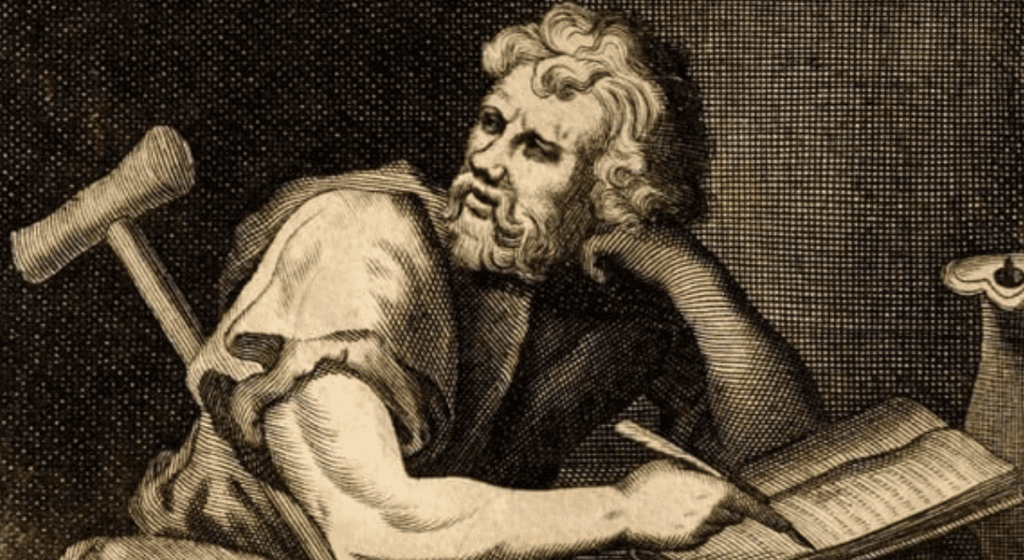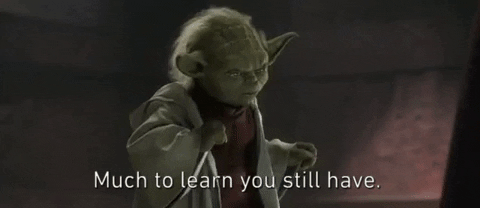
The struggle to balance spirituality with practicality is a well-worn path. Ancient philosophers and scholars have spent countless years pondering both theories. The good news is that spirituality and practicality aren’t mutually exclusive. We live in both worlds simultaneously, so we need both. We can harmonize both aspects of life by balancing the needs of life in the material with the needs of our spirits. Learn four ways to balance spirituality and practicality. (Estimated reading time: 11 minutes)
“Science without religion is lame. Religion without science is blind.”
— Albert Einstein
Life is all about perspective. How we mentally, emotionally, and spiritually view the world shapes us more than we think. That’s why we must choose the right perspectives on the big questions.
Since humans have inhabited the Earth, one question has confounded us: do we live in a spiritual or material universe? The answer to this question has eluded us because we deal with unseen forces. Hence, the tussle between “what we see” (and can’t see) and “how we look” at things.
For thousands of years, we have searched for Truth and the ultimate answers to timeless questions such as:
- Who am I?
- What is my purpose?
- What is the meaning of life?
To answer these eternal questions, people typically follow two distinct routes – one steeped in spirituality and the other in practicality.
For a believer, there is no need to prove rationally that a Higher Power exists. Its existence is evident in the creation of the world and the cosmos. Their philosophy can be summed up by a quote from French philosopher Pierre Teilhard de Chardin, “We are not human beings having a spiritual experience. We are spiritual beings having a human experience.”
For the skeptics, their lives are rooted in the material plane. They don’t think it’s possible to know whether spiritual forces exist and lean more towards fact and scientific explanations.
In the early years of my adult life, my outlook was predominantly spiritual. I believed my life followed a purposeful trajectory, supported by a friendly and conscious universe. Viewing life through this lens gave me the emotional cushioning that a life of faith typically provides.
However, after I started branching out and exploring other schools of thought, my beliefs began to shift. Reading the works of thinkers and scientists like Richard Dawkins, Yuval Noah Harari, Stephen Hawking, and Carl Sagan made me question what I believed.
I’m not alone in this experience. The struggle to balance spirituality with practicality is a well-worn path. Both ancient and modern philosophers and scholars have spent countless years pondering both theories.
In the end, there’s no legitimate proof of the validity of either viewpoint. It comes down to which we choose to believe in. It is a matter of personal choice and what works best for us. What’s essential is that we think for ourselves and don’t blindly accept what we’ve been taught.
I reached a happy compromise after realizing that it’s possible to personalize spirituality and balance spirituality and practicality in ways that help us thrive in a material world.
The purpose of spirituality in our lives

Spirituality is a loaded term that can be interpreted in many ways. It’s often used interchangeably with religion. While the lines are blurry between the two, they are not the same. Knowing this can prevent people from bringing their prejudice and concerns about religion to spiritual discussions.
Let’s take a closer look at the differences between religion and spirituality:
Religion: This is a specific set of beliefs and practices based on the teachings and lives of historical and revered figures such as Buddha, Christ, Muhammad, and Moses. Their wisdom has been preserved across time through scripture and oral communication. They are subjects of devotion and rituals shared by a community.
Spirituality: This individual practice involves finding a sense of purpose and peace. It’s an inner discovery that people embark on to develop beliefs around life’s meaning and connection with everything and everyone. It is when religious or non-religious beliefs are applied in everyday practice.
These distinctions are general markers to help us understand two equally valid ways of seeking truth. We can be religious, spiritual or both. Being religious does not automatically make you spiritual and vice versa.
For centuries, humanity has been grounded in religious or spiritual beliefs, but over the last decade, our need for them has declined. With the advent of science, technology, and secular social trends, our lives have less room for spiritual and religious practices.
Science answers all the questions, and technology has made life more convenient, yet people still feel anxious, empty, and depressed. They feel the void and absence of meaning.
Without a connection to our souls, we feel hollow, with a vague sense of being lost in the shallowness of a material life. We think this way because spirituality is paramount to moral development and gives us the conviction to live our lives from a place of strength. It can also benefit our health.
Multiple studies have proven that people with a spiritual mindset are considerably less prone to developing mental health problems, heart disease, and experiencing stress compared to their secular counterparts.
Believing in a conscious universe also makes sense on a practical level. People who believe we lead a random existence are more likely to miss out on crucial life lessons and invaluable clues that could potentially lead them to higher ground. Their cynicism prevents them from searching for the underlying meaning and connectivity of events in their lives.
Younger generations are gradually catching on to this and finding ways to customize their spiritual practices. This is evident in the rise of New Age practices like tarot, meditation, astrology, crystals, and energy healing. For many, it provides a viable alternative to the rigid structures of organized religion by offering freedom and flexibility to form their own beliefs.
Another reason that New Age spirituality has gained popularity is that it’s rooted in the ideal of self-empowerment and self-discovery. According to writer Thomas Moore, we can carve out our own spiritual path based on what inspires us. In this book, “A Religion of One’s Own,” he writes:
“Every day I add another piece to the religion that is my own. It’s built on years of meditation, chanting, theological study, and the practice of therapy — to me, a sacred activity. But I use my own inspirations, knowledge, taste, and understanding to give shape to this religion that suits the person I am today.”
Moore believes that complementing this with a formal study of world religions will help us see the value, beauty, and wisdom in texts, arts, and stories. Our appreciation results from the spiritual insight we develop through searching and expressing our spiritual feelings.
Creating a spiritual practice, or as Moore put it, “a religion of our own,” will make it much easier to balance spirituality with practicality and enjoy the best of both worlds.
Finding value in a practical perspective on life

Unless you plan to live in a cave for the rest of your life, you will have to contend with the reality of daily living in a physical world. Your focus will be on material things, facts, money, competition, planning, accomplishing, and challenging people.
To take care of these realities, we need the right skill set. In 1999, the World Health Organization (WHO) identified six key life skills:
1. Problem-solving and decision-making: the ability to understand problems, find solutions, and act on them.
2. Creative and critical thinking: the ability to generate new ideas and develop various creative solutions to overcome hurdles.
3. Effective communication skills: Having the social intelligence and skills to build a connection with people and work with them.
4. Self-control and assertiveness: Knowing how to stand up for yourself and others and enforce discipline when needed. It’s also about staying calm when provoked.
5. Resilience and ability to cope with challenges: Having the emotional wherewithal to stand firm, recover from setbacks, and learn from experiences.
6. Self-awareness and empathy: These are two critical components of emotional intelligence that speak to your connection to yourself and your capability to feel for other people and put yourself in their shoes.
Some of these skills may be more relevant to you, depending on your profession, life situation, beliefs, culture, and location. For instance, a social worker may need more empathy and self-awareness than an accountant, who requires more critical thinking skills.
Broadly speaking, these life skills, used in the proper doses, can help us navigate life’s peaks and valleys. However, some prefer a holistic approach (instead of a piecemeal one) that’s been tried and tested over time.
Several philosophies don’t emphasize the otherworldly aspects of life and focus more on rational and moral faculty. Two of them have gained popularity over the past few decades: Humanism and Stoicism.
Humanism is a belief system, life stance, or philosophy that focuses on secular ethics and morals without religion or a belief in a deity. It embraces human reasoning and philosophical naturalism while rejecting superstition and dogma. It was born during the Renaissance when people began to take more interest in cultural achievements and self-actualization.
Stoics embrace the humanist approach to an ethical life, but it also justifies interests in natural sciences, metaphysics, social science, and philosophy. Stoicism dates to the 3rd century BCE and was founded by ancient Greek and Roman philosophers like Epictetus, Seneca, and Marcus Aurelius.
Stoicism has gained appeal in the modern age because it’s compatible with the values of our time. People want to feel happier, reduce negative feelings, and build character. Stoics offer a practical framework informed by science and reason to achieve this and live well.
Stoicism’s most significant appeal is its flexibility in terms of spiritual beliefs. Flexible agnosticism means that adherents can still pursue a religious path if it helps them become better human beings and live virtuously. Stoic philosopher Marcus Aurelius said:
“Things are either isolated units, or they form one inseparable whole. If that whole be God, then all is well; but if aimless chance, at least you need not be aimless also.”
Followers of Stoicism can have the “best of both worlds”: a belief system grounded in logic, science, and morality with room for faith in a higher power. If we try, we can find the spiritual in the physical. Our time on Earth presents plenty of opportunities to grow, learn, and evolve.
Practices to balance spirituality with practicality

The good news is that spirituality and practicality aren’t mutually exclusive. We live in both worlds simultaneously, so we need both. We can harmonize both aspects of life by balancing the needs of life in the material world with the needs of the spirit.
Here are four ways that you can learn to balance spirituality and practicality:
1. Define what spirituality means to you
Spirituality is different for each of us. It’s a broad concept that can include several beliefs and philosophies. It may center around the faith you grew up in, like Christianity, Islam, Judaism, Hinduism, or Buddhism. Being part of your community and reading the scriptures might invoke the sacred within you.
Alternatively, your spirituality may not have a religious component but could simply involve the act of going inward. Perhaps you get your dose of spirituality from taking long walks in nature, yoga, meditation, quiet reflection, art, or gazing at a sunset or a starry sky. We can experience a sense of transcendence, deep aliveness, and interconnectedness in many ways if we’re willing to look for it.
2. Learn about other religions and philosophies (if you feel called to)
You can craft your own perspective by going deeper into your religion and its traditions and allowing it to take you on paths that have meaning for you. You can seek out if you’re open to learning about other views. We live in an age where we have information at our fingertips. Books, movies, articles, forums, and podcasts can give us a glimpse into any belief system.
When you’re actively engaged in finding your own way and answers, you’ll feel inspired to explore formal religions and traditions, and find value, beauty, and wisdom in their stories, images, and rituals — whether it’s Sufi poetry, Sutras, Gospel teaching, or the Kabbalah.
3. Approach the ‘Big Questions’ from a variety of perspectives
All humans, regardless of their beliefs, grapple with existential questions. We ask questions like:
- Who am I?
- What is the meaning of life?
- Do things happen for a reason?
- How was the universe created?
- What happens after we die?
- How can I make the most of my time on Earth?
The search for truth, the universe, and our place in it is instinctive. Whether people find answers to these age-old questions in their childhood faith or through science, choosing a path that aligns with their values is essential.
I like to ask myself, “How would a Buddhist, atheist, paganist, protestant, or someone of another religion answer this?” and see how I feel when reflecting on their responses.
4. Interact with people with different ideologies
Meeting people from outside our ideological bubbles requires us to make a conscious effort to step outside of them. Most of us don’t realize that thinking that our own way of life is the only one and that everyone else’s is a strange variation makes it hard to approach other religions and belief systems with respect. It’s worth the effort because it provides a valuable opportunity to grow as a person – it gives us a chance to strengthen, change, or challenge our existing beliefs.
Even if we don’t agree with someone, we can gain a lot by seeing the world from their viewpoint. This fosters greater empathy and understanding for our fellow beings and makes us connect with them as humans.
When choosing the right balance of spirituality and practicality, the ultimate litmus test is checking how it makes you feel and behave. Our true essence is kind, loving, generous, and compassionate. Whatever you believe in should foster these traits and make you feel more relaxed and connected to the world around you.
All my best on your journey,
Seline

Question for you: What methods do you use to balance spirituality with practicality? How does your practice serve you in the material world?
Did you like this post? Sign up below, and I’ll send you more awesome posts like this every week.

Have Your Say